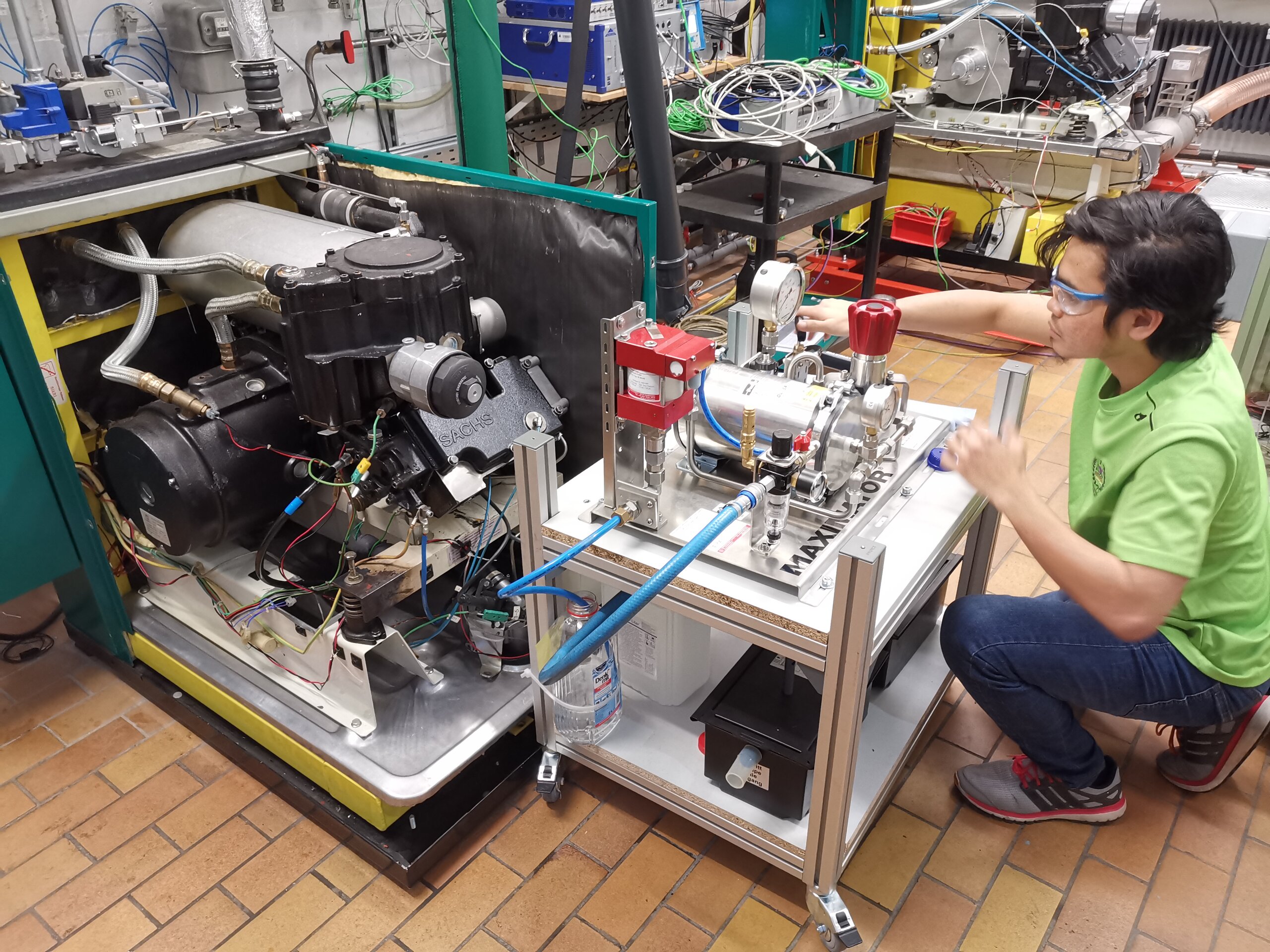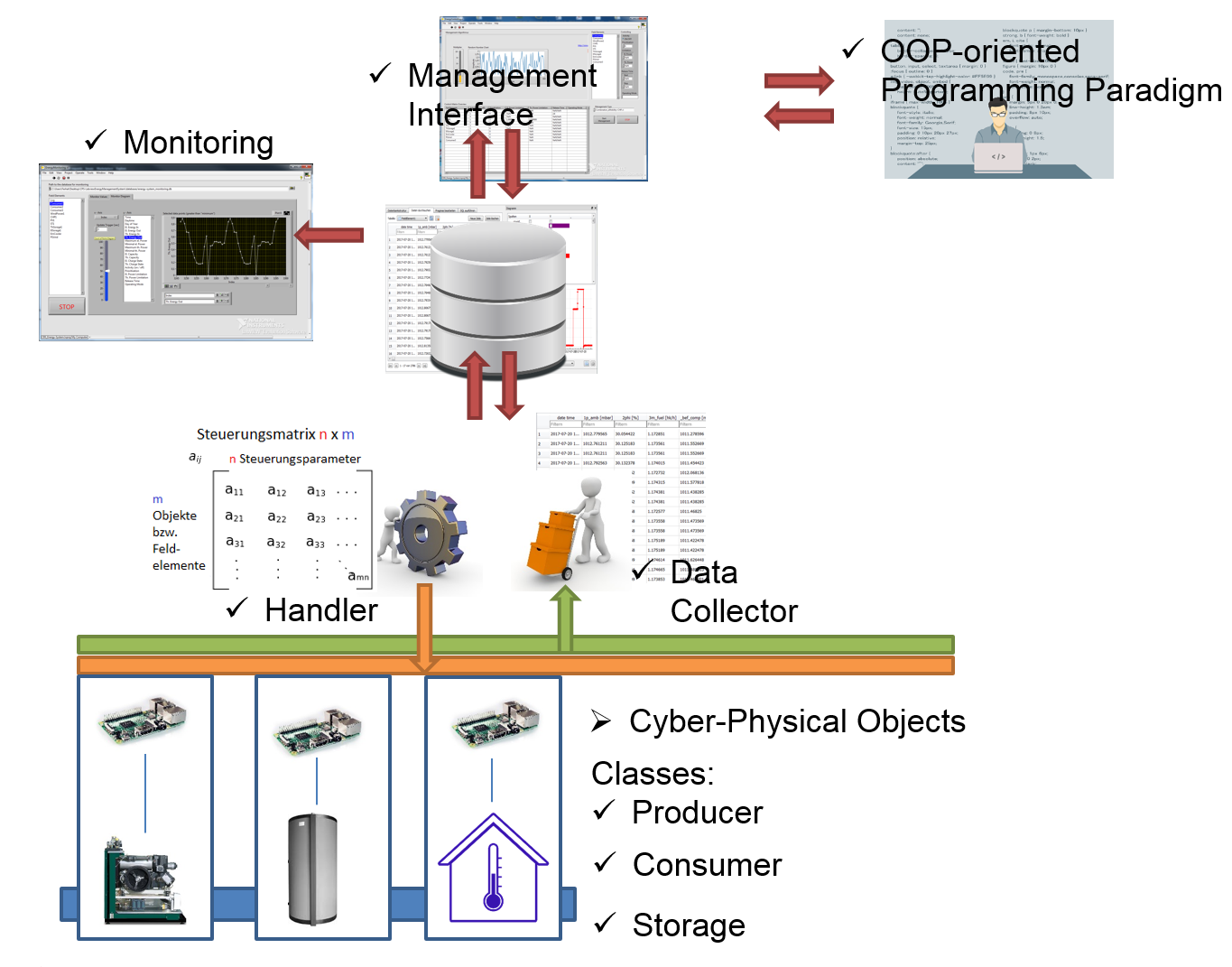
ηNet
ηNet
Networking and energy management between CHPs and electric vehicles
Digitalization is the defining innovation driver for sustainable value chains in the modern global industrial society. Global warming and resource scarcity require technical solutions capable of ensuring the stability and natural regenerative capacity of our environment.
The energy system of the future will be a network of a variety of technologies and applications that provide efficiency gains, flexibility and better resource utilization through self-optimizing automation of processes. A cyber-physical system represents the desired unity of reality and digital image and is the further development of mechatronics into a symbiotic system approach based on the information technology networking of all components [1]. The aim of the project is to develop a cyber-physical software and network system that abstracts material, energy and data flows and thus creates the basis for enabling optimization and adaptation algorithms.

"The digital transformation is in full swing." For this reason, the Engine Technology and CHP Research Group at the Institute of Air Conditioning, Refrigeration and Environmental Engineering uses Git and GitHub as a tool for software and research data management and can also be reached at GitHub.com/ikkuengine
With the permission of Karlsruhe University of Applied Sciences, open-source software projects are published in GitHub and further joint collaboration is encouraged for further developments:
Current information about the project
All basic functions of the data-driven μNet management were further developed, simulations were carried out and real operation was tested on the basis of these cyber-physical systems. In laboratory operation, a BKHW model Dachs G5.5 from the company SenerTec, a heat storage system from the company Buderus, and the electric vehicle of the BMW model i3 from 2014 were networked and coordinated in terms of energy technology via a digital level. The results show that intelligent coordination and the use of digital technologies can combine two highly efficient systems for everyday use. All management functions could be tested in the laboratory of Karlsruhe University of Applied Sciences and it could be shown that both energy and costs can be saved.
Project partners
Institute of Microsystems Engineering - IMTEK, Albert-Ludwigs-Universität Freiburg
within the framework of the Upper Rhine Research Alliance
Last Updated
26.02.2021